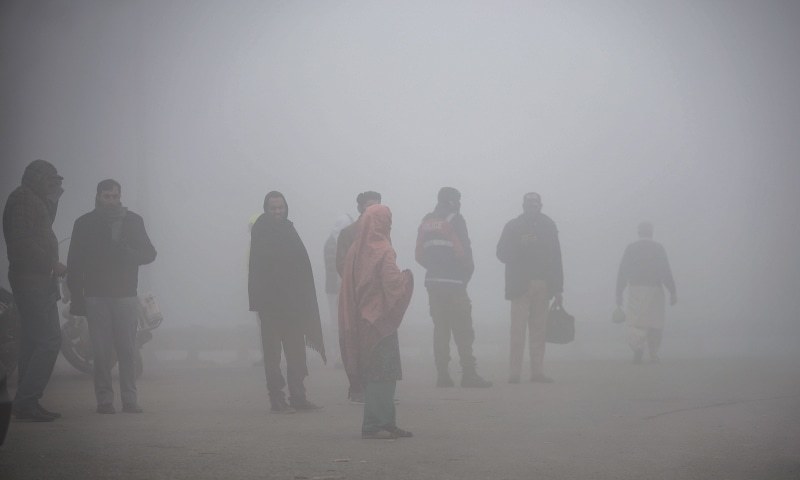
ISLAMABAD: Special Assistant to the Prime Minister (SAPM) on Climate Change Malik Amin Aslam on Sunday said a transboundary dialogue on mitigating air pollution was imperative to resolve Lahore’s smog mostly generating due to Indian farmers crop residue burning.
During the 26th Conference of Parties (COP-26) held in Glasgow, the SAPM said he had proposed the South Asian Ministers’ panel meeting that Pakistan could convene a regional conference on addressing the issue of transboundary air pollution under the Mali Agreement as the country was signatory to it. Amin said the recent NASA report has indicated 80 percent crop burning hotspots in the Indian Punjab particularly in the state of Haryana that was shifting the effluence to Lahore causing smog.
He added that a $280 million World Bank funded project to be implemented in Punjab for advanced air quality monitors was also facing a halt despite receiving complete funding. “It is a very important project that will help generate realtime certified data which will be a calibrated one as data scarcity is also a hurdle in timely decision making,” he said. Pakistan, he said in its capacity has introduced Euro-V quality fuel, Electric Vehicles Policy, over a million Brick Kilns conversion over zigzag technology and dry scrubbers were introduced in the steel furnaces to reduce dark carbon emissions into the atmosphere to curb smog.
Despite all these measures, air pollution was entering Pakistan by Indian amid transboundary pollution that was becoming a major crisis for the region particularly Pakistan that needed to be addressed, the SAPM noted. To a question, he pointed out that Happy Seeder Technology an advanced solution to curb crop residue burning was also introduced last year in Punjab and 500 machines were distributed among the farmers and was to be scaled up in the next phase. However, again the project was also facing hiccups in the Punjab government, he added.
He underlined that during the last week, a dust storm emerged in the Thal Desert has also hit the Lahore region and created pollution. Amin concluded, “We need to talk to India to contain its contamination of the ambience and help protect the environment. I have also raised this issue of bilateral engagement on air pollution at the COP-26 platform.”
It merits mention that research back in 2019 jointly undertaken by 29 Indian and international researchers from The Nature Conservancy, the International Maize and Wheat Improvement Centre (CIMMYT), the University of Minnesota, the Indian Council of Agricultural Research (ICAR), the Borlaug Institute for South Asia (BISA) and other organizations has revealed that every year, some 23 million tonnes of rice residue was burnt in the states of Haryana, Punjab, and Western Uttar Pradesh, contributing significantly to air pollution and short-lived climate pollutants.